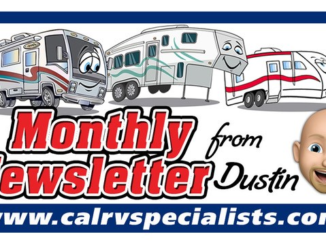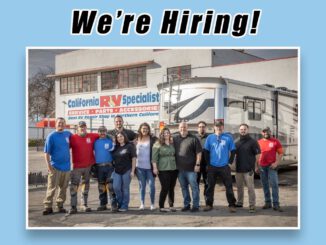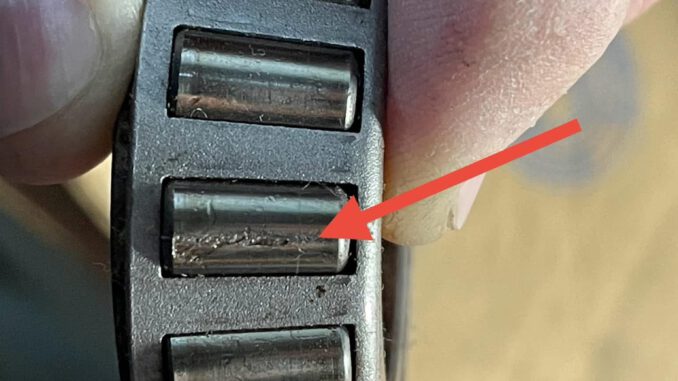
Wheel bearing maintenance might not be the flashiest topic in the RV world, but it’s one of the most important—especially if you’ve ever found rust-colored grease inside your hubs. If you’ve pulled your RV’s hubs apart and noticed grease with a reddish or brownish tint, that’s not just old lubricant—it’s a sign of moisture contamination and potential corrosion.
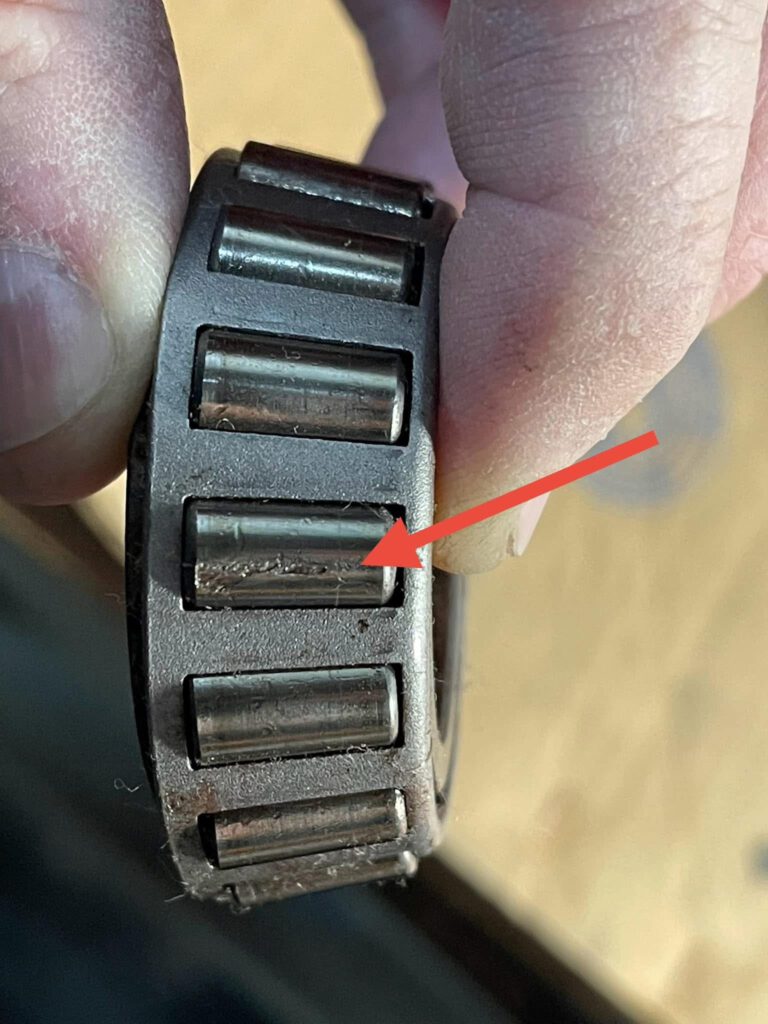
So, what causes bearing grease to turn rusty? And more importantly, what should you do about it?
Let’s break it down.
1. Moisture Ingress: The #1 Culprit
Water is the enemy of bearing grease. Once moisture enters the axle or hub assembly, it can mix with the grease and significantly degrade its lubricating and protective qualities. Here’s how that water typically gets in:
- Driving in wet conditions or through standing water
- Improper washing techniques, like pressure washing directly over the hub
- Storage in high humidity or fluctuating temperatures, which can lead to condensation forming inside the axle assembly
When water and grease mix, the grease breaks down and becomes milky, sludgy—or rusty, if corrosion has already started.
2. Seal Failure: The Gate Is Open
Wheel bearings rely on seals to keep contaminants out. But over time, those seals can become:
- Worn out or cracked, especially after long periods of heat exposure or heavy use
- Damaged during service if not handled properly
- Incorrectly installed, leaving small gaps where water can seep in
If your seals are compromised, even small amounts of water can get in and start doing damage.
3. Grease Breakdown and Corrosion
Even quality grease has its limits. Once moisture enters the system:
- The grease loses its ability to repel contaminants
- It becomes less viscous, less stable, and starts breaking down chemically
- Rust forms on metal surfaces within the hub, and flakes of corrosion may mix into the grease itself
This rust-colored grease is a red flag—literally and figuratively—that your bearings may be suffering internal corrosion.
4. Chemical Reactions and Acidity
Contaminants in the hub can interact with water to create acidic compounds. These compounds can accelerate corrosion, not just on the bearings themselves but on the races, spindle surfaces, and inside the axle tube.
5. Lack of Maintenance: A Recipe for Rust
Neglecting regular bearing service is a surefire way to invite trouble. Many RV owners are surprised to learn that bearings should be inspected, cleaned, and re-greased every 12 months or 12,000 miles, whichever comes first.
Skipping this service allows contaminated grease to stay in place, accelerating wear and rust from the inside out.
6. Worn Bearings Can Make It Worse
Bearings that are already worn out or have begun to break apart can create small gaps in the seal system, allowing even more moisture in. Additionally, metal shavings from worn bearings can mix with grease, contributing to discoloration and increasing friction.
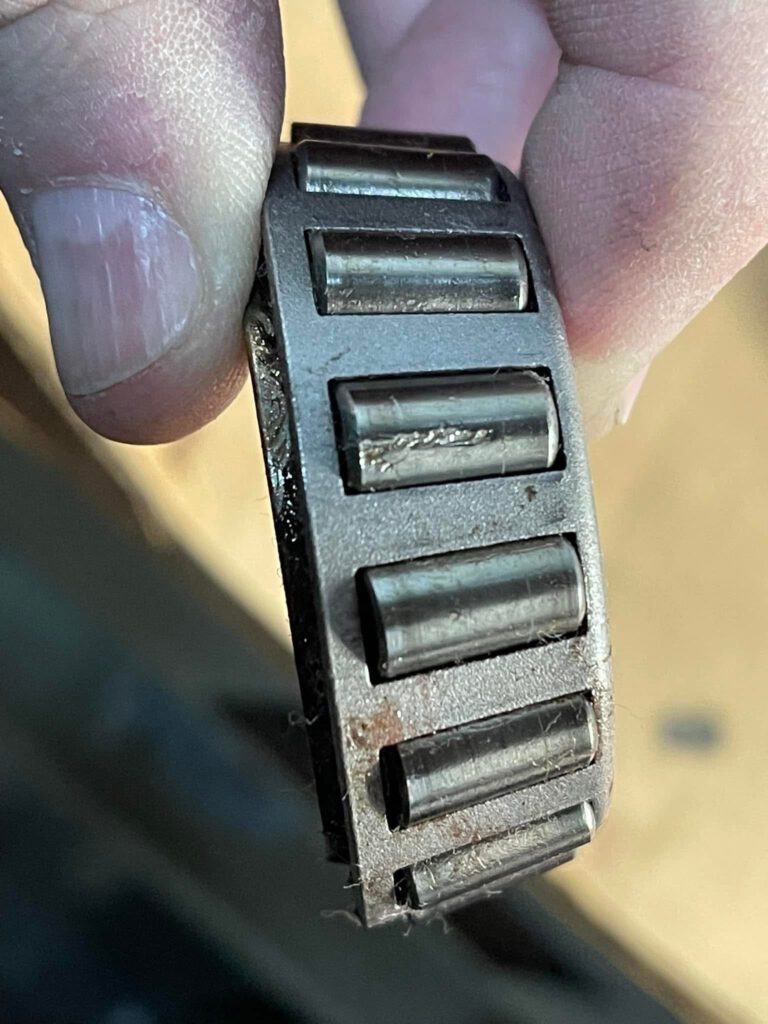
How to Prevent Rusty Grease Issues
- Inspect bearings regularly, especially before long trips
- Use high-quality, water-resistant grease designed for trailers or heavy-duty vehicles
- Always install new seals during bearing service
- Avoid direct pressure washing near wheel hubs
- Store your RV in a dry environment or use tire covers and wheel protection during long-term storage
Bottom line: If you see rust-colored grease, don’t ignore it. It’s a warning sign that your axle and bearing system needs attention—fast. Left unchecked, it can lead to premature bearing failure, brake damage, and even a dangerous situation on the road.
When in doubt, schedule a bearing inspection with a professional RV service center. You’ll have peace of mind knowing your wheels are turning safely—and smoothly.
More from Dustin
Make sure you check out my website, California RV Specialists, and our YouTube channel for more helpful information, and other social media pages.
AFFILIATE DISCLOSURE
Some of the links on this page are affiliate links. If you choose to make a purchase using our links, we will earn a small commission – at no additional cost to you! Affiliate links help compensate us for our time and effort into providing this information FREE to you. Thank you for using these links.
SHOP WITH US!
Amazon Storefront
eBay Store

